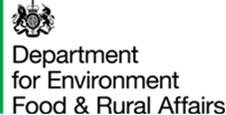Defra Press Notice: UK Government bolsters worldwide conservation efforts with major data donation
Embargoed release – 9.30am, Thursday 10 November 2016
The UK will bolster its commitment to increase worldwide biodiversity, improve drinking water quality and crop security in developing nations, and tackle global challenges like climate change, by sharing more than 23,000 sets of environmental data with the international science community, Food and Farming Minister George Eustice announced today.
The data, compiled by Defra, the UK Space Agency and the National Centre for Earth Observation, covers everything from UK river levels, to sea thickness in the Arctic, drought indicators in Europe, and crop safety in Asia. It will be shared with the Group on Earth Observations (GEO) – an international collaboration focused on making environmental data available worldwide.
The contribution will be announced at today’s GEO plenary meeting in St Petersburg, which brings together academics and government representatives from around the world to explore future applications of open environmental data.
Speaking ahead of the event, Food and Farming Minister George Eustice said:
“This Government is committed to being the first generation to leave the environment in a better state than when we inherited it, which is why, along with our domestic efforts, I’m proud to be supporting international collaborative work to tackle the worldwide environmental issues that affect us all.
“Our Earth observation data is already being used to great effect in the UK, both with our flood recovery efforts and with our work tracking non-native invasive species, so I’m delighted that these will now be available for the rest of the world to use.”
The data records are shared via the government’s www.data.gov.uk webpage with GEO’s data portal, the Global Earth Observation System of Systems (GEOSS).
Professor Ian Boyd, Defra Chief Scientific Adviser said: “Bringing together national data from across the globe via the GEOSS portal is a momentous development that will benefit scientists, policymakers and citizens the world over. We will start to see a more comprehensive environmental picture which in turn, will accelerate scientific progress and support efforts to tackle global societal challenges.
“The GEOSS portal will have a particularly important impact on the accessibility of in situ data which until now, has been very difficult to find and use.”
The announcement is the latest development in Defra’s Innovation and Growth Data project (IGD) which has seen more than 8,000 individual data collections made available to the public that are estimated to be worth around £16bn a year to the UK economy, allowing businesses to be more innovative, efficient and creative – 2014 research by Rabobank found that in farming alone, open data could bring major advances in productivity such as a 5% increase in crop yields and 3% savings in costs.
UK mapping data compiled by the Defra group’s Environment Agency has also played an important part in revolutionising the booming English wine industry, helping growers identify new land to grow more and better quality grapes, by tracking the tiny variations in slope and aspect of land. When used in combination with other data, growers are able to pinpoint the best location to plant vines that will thrive.
Other pilot research projects across Defra have shown how satellite and Earth observation data can help protect wildlife and farmland, as well as manage our forests and woodland. One project will see the creation of ‘Living Maps’, plotting natural features such as grasslands, marshes and woodlands so we can better manage nature, improve pollination and reduce erosion in areas that need it most.
On an international level, the GEOSS data portal and other GEO projects are already having a positive impact, with satellite datasets being harnessed to improve everything from flood controls in Tunisia to rainfall forecasts for farmers in Senegal.
-ends-
For more detail on organisations involved, visit their respective websites:
- Group on Earth Observations (GEO) www.earthobservations.org/
- The National Centre for Earth Observation www.nceo.ac.uk
- UK Space Agency www.gov.uk/government/organisations/uk-space-agency
- The GEOSS data portal can be found at www.geoportal.org/web/guest/geo_home_stp
- Defra and its agencies are at the forefront of science policy, spending around £200 million on evidence each year.
- For more information, call the Defra press office on 0208 026 3116
